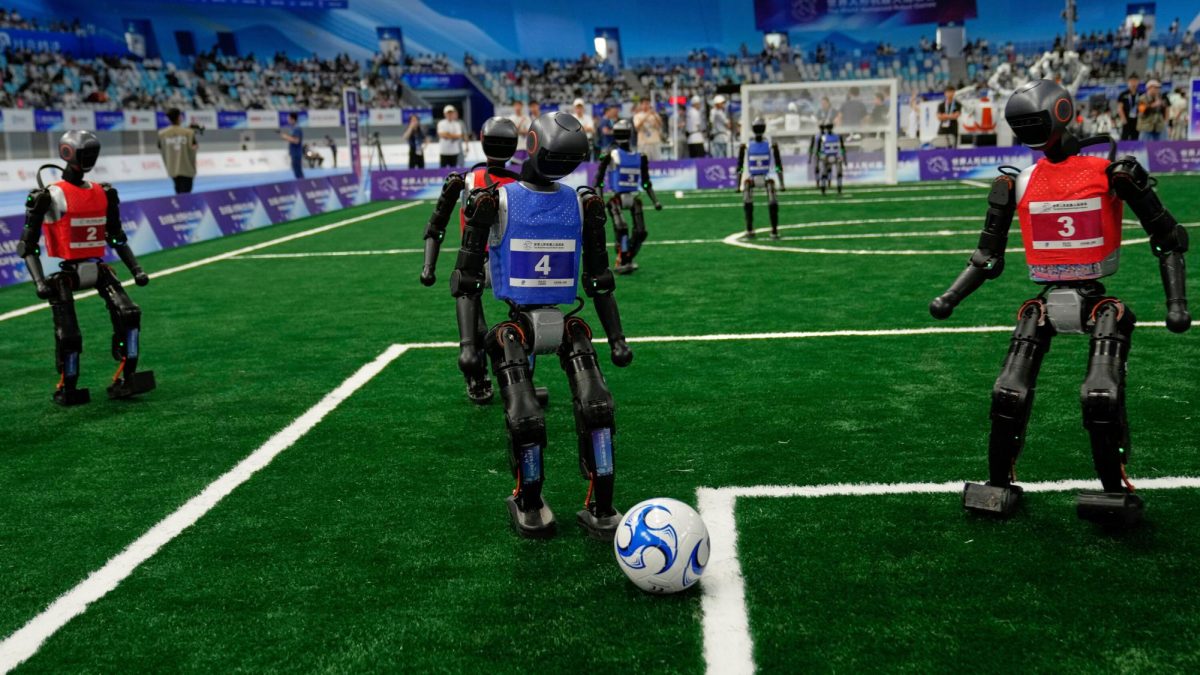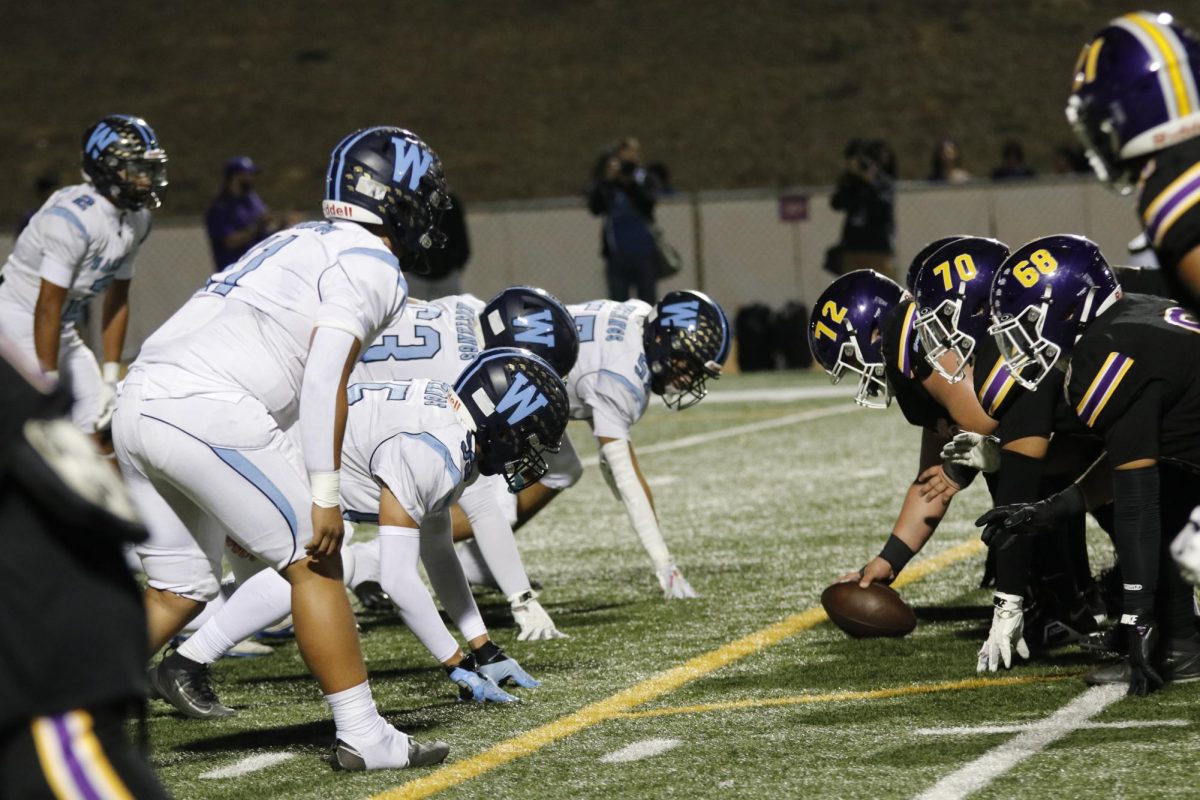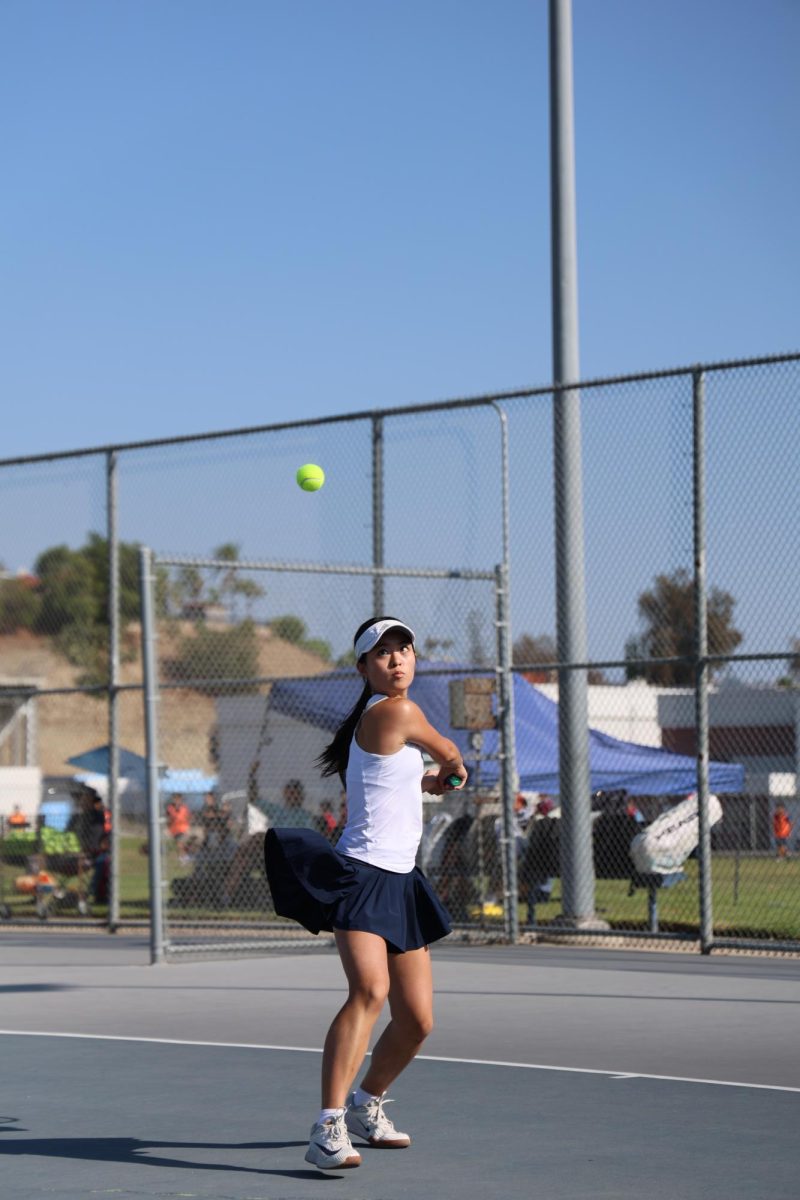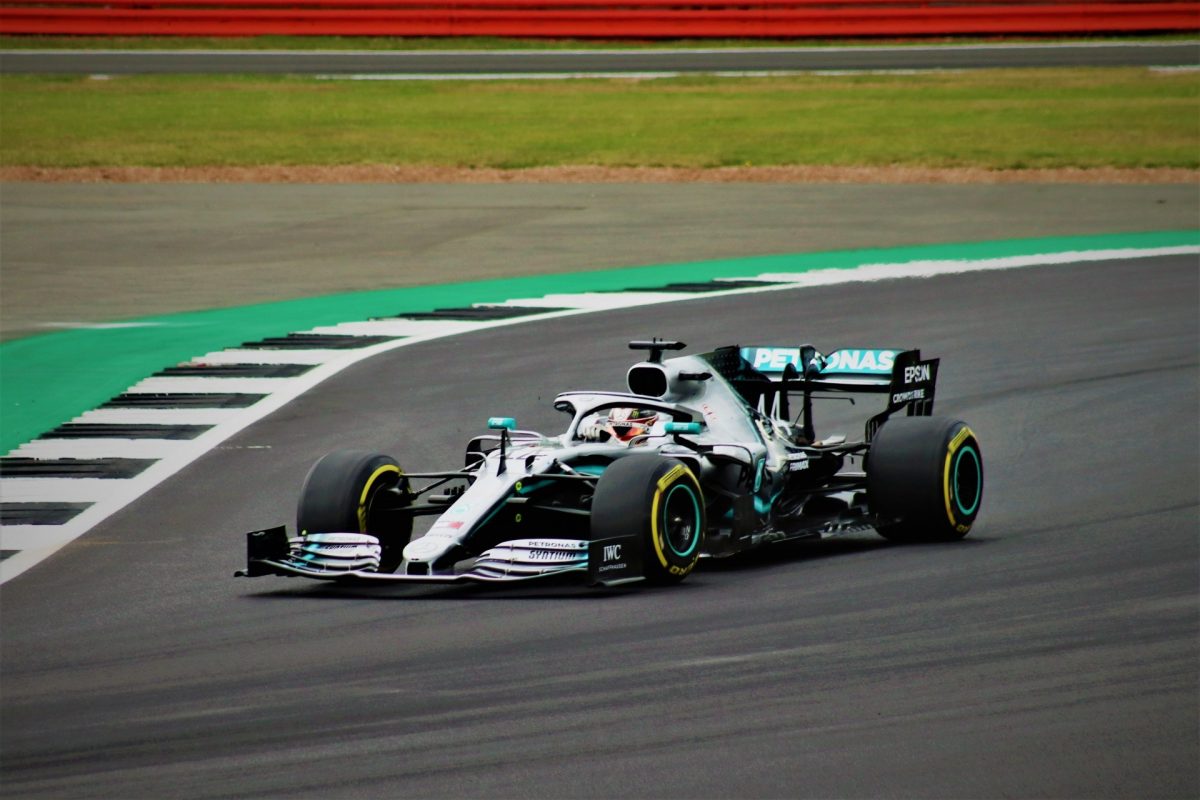Would you enjoy seeing a robot play your favorite sport instead of your favorite player? Nike didn’t think so. In 2014, before the World Cup, Nike released a five minute short called “The Last Game.” The short involved the rise of clones, who were perfect in playing every aspect of soccer. Those clones would replace real athletes, making them leave the sport. But the athletes would come back to defeat the clones and bring back the excitement of soccer. Nike’s effort to push back against technology overtaking sports would be a warning for us 12 years later.
The first World Humanoid Robot Games took place in Beijing, China, from Aug. 15 -17. Five hundred robots from 16 countries participated in 26 different sports. The tournament opened with robots dancing to hip hop, performing martial arts and playing different instruments. Afterwards, the games began with robots competing in sports like running, kickboxing and soccer. With the emergence of humanoid robots in sports, there should be a limit to ensure that technology enhances a sport without diminishing the athletes and their skills.
Many sports have already implemented technology, such as video replay, that helps navigate plays in ball sports like tennis and soccer. Focusing on improving that type of technology can create a smoother and enjoyable game for both athletes and fans. However, if technology starts to replace the players, it can completely change sports for the worse.
Sports culture is very important to society. Many people admire players for their talent, their love for the sport and their personality. Athletes can be an idol for someone to continue pursuing in their sport no matter how hard it gets. Although in the present, these humanoid robot athletes are part of the sports category, if technology advances in sports to the point of competing against human athletes, it can ultimately get rid of sport culture itself.
Social culture can also be a risk as technology progresses in sports. Fans gather together around the world everyday to watch their favorite team or player. Tournaments like the World Cup or the Super Bowl, where despite the rivalry of two teams, unite people and create historical experiences. For example, in 1973, tennis player Billie Jean King played against Bobby Riggs in the “Battle of the Sexes” where she won, proving that women’s sports wasn’t inferior to men’s. No tennis match has had so many views like this one as it brought an estimation of 50 million American viewers. The environment of a sports game would not be the same if robots were in the field instead of athletes. The excitement, the intensity and the overall emotions one would feel would be lost.
China’s humanoid games showcase that technology can continue to advance and may be able to perfect a robot’s skill in a sport. But robots will never express the same passion as real athletes do. Athletes have faced struggles throughout their journey to their professional career and those challenges played a factor in achieving their dream. That motivates them to give their all in each game. The stories behind these athletes inspire many people around the world and are part of the reason why there are so many sports fans.
Overall, having robots play a sport can change how the game feels for the viewers. For example, as a soccer fan, one of my favorite memories from the 2022 World Cup was when goalie Guillermo Ochoa blocked a penalty from striker Robert Lewandowski. To see his reaction after the block and seeing the fans celebrate along with him filled me with excitement and hope. But if I were to rewatch that clip with the same robot that participated in China’s humanoid games as the goalie, I wouldn’t be able to see and feel the same emotion as an expressionless blank face.
Although not everyone may be a soccer fan, could you imagine relieving some historical sports moments played by robots instead of the actual players? For instance, Kawhi Leonard’s last minute three pointer in Game 7 of the Eastern Conference or Freddie Freeman’s grand slam in the 10th inning against the Yankees. Robots can never recreate the same thrill of these iconic plays. Therefore, robots can enhance the tech industry but should not interfere with the sports industry. As the world is turning artificial every day, letting technology control sports would destroy the influence and impact that sports have had on people for generations.








